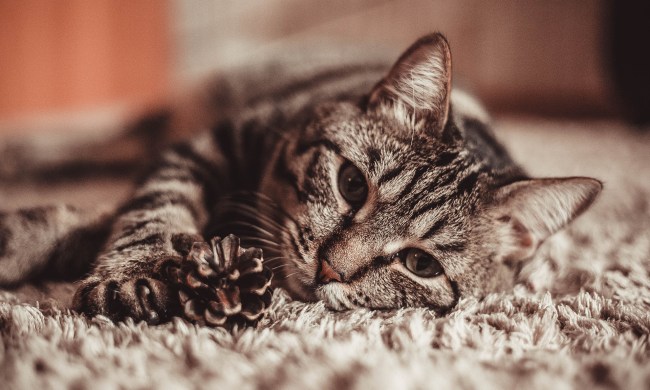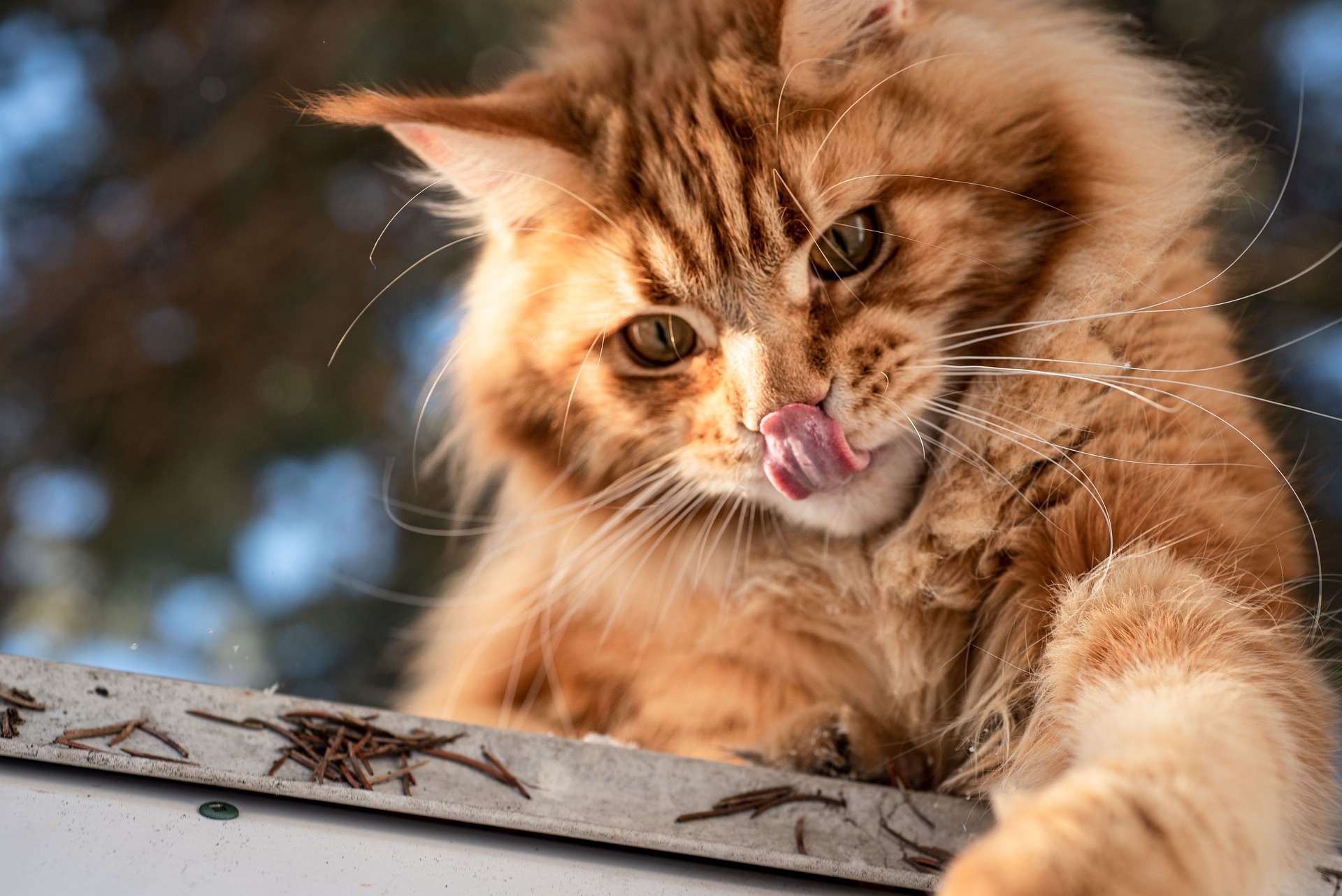
There are plenty of big and fluffy cats out there, but one of the best-known breeds fitting this description is the Maine Coon. These cats are not only impressive in size, but they also tend to have fantastic personalities that make them beloved family pets. While purebred Maine Coons are a little more uncommon in rescues and shelters, it’s possible to adopt a Maine Coon mix that still has some of the breed’s distinctive characteristics.
While telling exactly which breeds your cat is can be a little tricky, it’s worth doing some investigative work to better understand your feline’s background and what that might mean for the care he needs during his life.
Where do Maine Coon cats come from?
You may have heard that the Maine Coon Cate originated from a fantastical cross between a feline and a raccoon. Of course, this didn’t really happen, but it could be where they get the name. (Another option, from a ship’s captain who brought the first of these kitties ashore.)
Instead, the cats might hail from Norway, or broader Northwest Europe, as they closely resemble the Norwegian Forest Cat in size and fur. Regardless, this breed has lived in America for at least 150 years and has enjoyed popularity in the colder climates where it puts the fuzzy coat to good use.
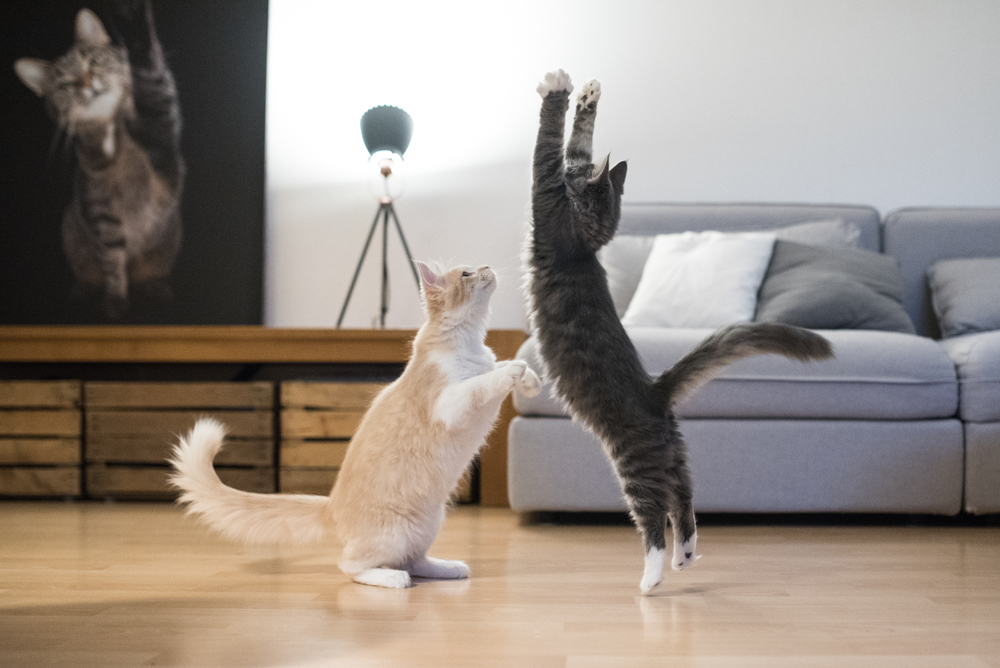
What does a mixed Maine Coon cat look like?
Speaking of the Coon cat’s lustrous mane, this feature commonly attracts owners (and could explain their winning streak in cat shows in the 1800s). You’ll find long hair common in many mixes though it certainly varies depending on the parentage and the individual cat. On top of the fur, Maine Coon mixes sport gorgeous fluffy tails and a poofy scruff (sometimes likened to a Shakespearean collar).
Color-wise, there’s a wide range in purebreds and you could throw in another variable when you have mixed ancestry. That means you have a number of options if you determine that one of these cat mutts will suit you and your family.
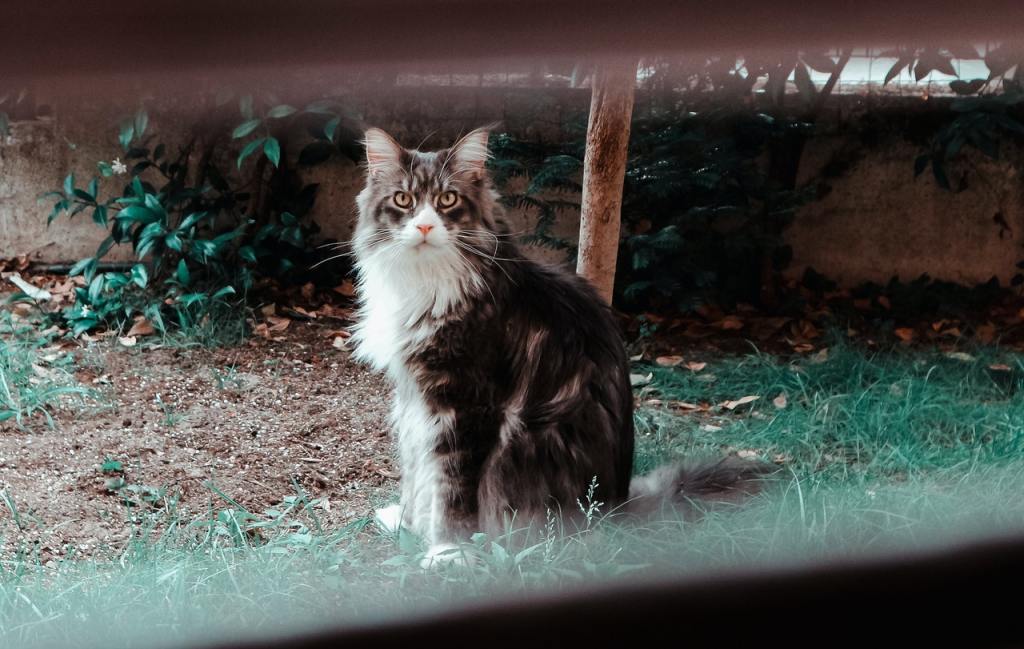
How big do Maine Coon mix cats get?
According to Vet Street, Maine Coons are some large cats. They can weigh between nine and 18 pounds, though the occasional Maine Coon can grow to be much larger. Additionally, these pretty kitties stand at up to 16 inches tall and 40 inches in length. You would generally spot the Maine Coon right away in a group of other cats.
While these cats are large, your Maine Coon mix’s size will partially depend on the breed of cat that he’s been crossed with.
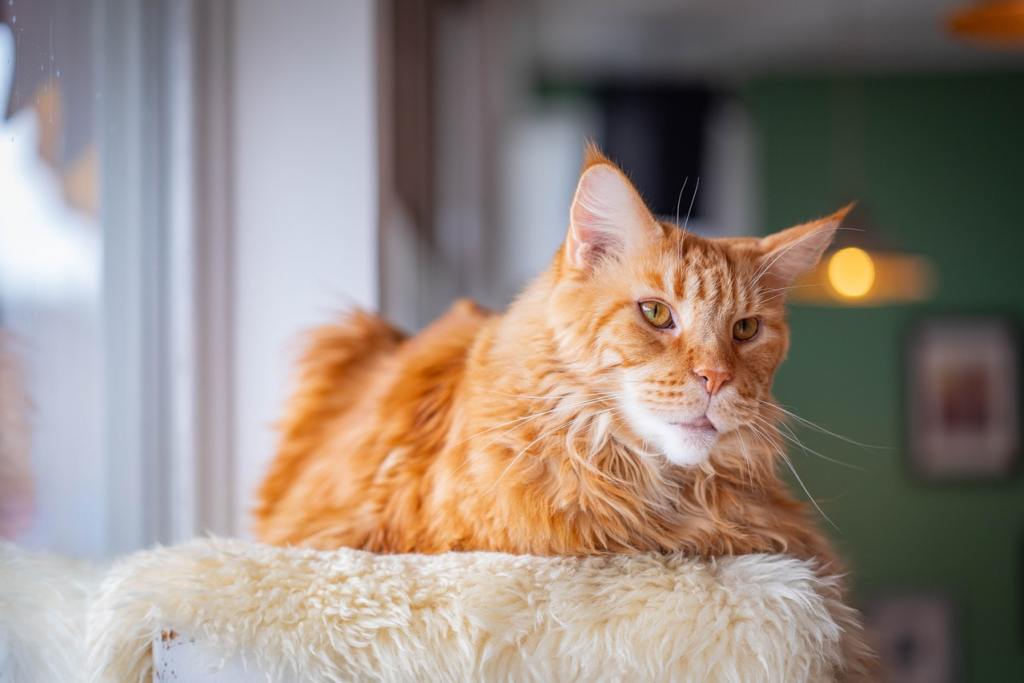
What is a Maine Coon usually mixed with?
Siamese-Maine Coon Mix, and the Ragdoll-Maine Coon Mix. People frequently go for one of these mixes because the animals turn out healthy, affectionate, and extremely attractive. Always research your breeder if you go that route to ensure they’re following best practices or adopt from a shelter.
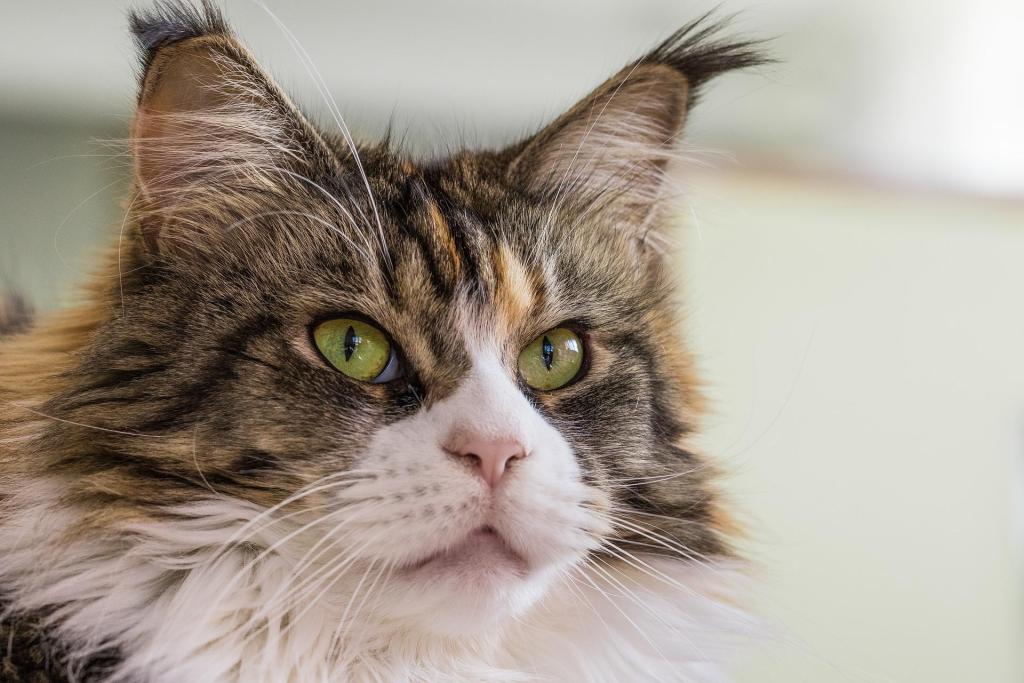
How can I tell if my cat is a Maine Coon mix?
According to Schertz Animal Hospital, the only way to tell if your cat is part Maine Coon is to have your cat genetically tested. Genetic tests for cats use saliva or blood to provide an estimate of your cat’s breed. You can order the test and have a kit shipped to you, or our veterinarian might have tests at their office and could perform the testing for you. It typically takes about six to eight weeks before you’ll receive your results, so you’ll need to be patient.
Your vet might also be able to help you identify common Maine Coon characteristics in your cat. You can look for features like a long coat that sheds often, a large size up to 16 inches tall, and a highly social nature. While these features can’t confirm that your cat is a Maine Coon mix, they can help to narrow down some options and might suggest that it’s worth having some genetic testing done to confirm your suspicions.
If you adopted your cat from a shelter[/internal-link], read the documents that you received during the adoption process. Some shelters that take in litters may know what the mother’s breed was, and if the mother was a Maine Coon, that will confirm your suspicions. Other times, shelters have very limited information on a cat’s background, so you may or may not be able to confirm your cat’s breed through that paperwork.
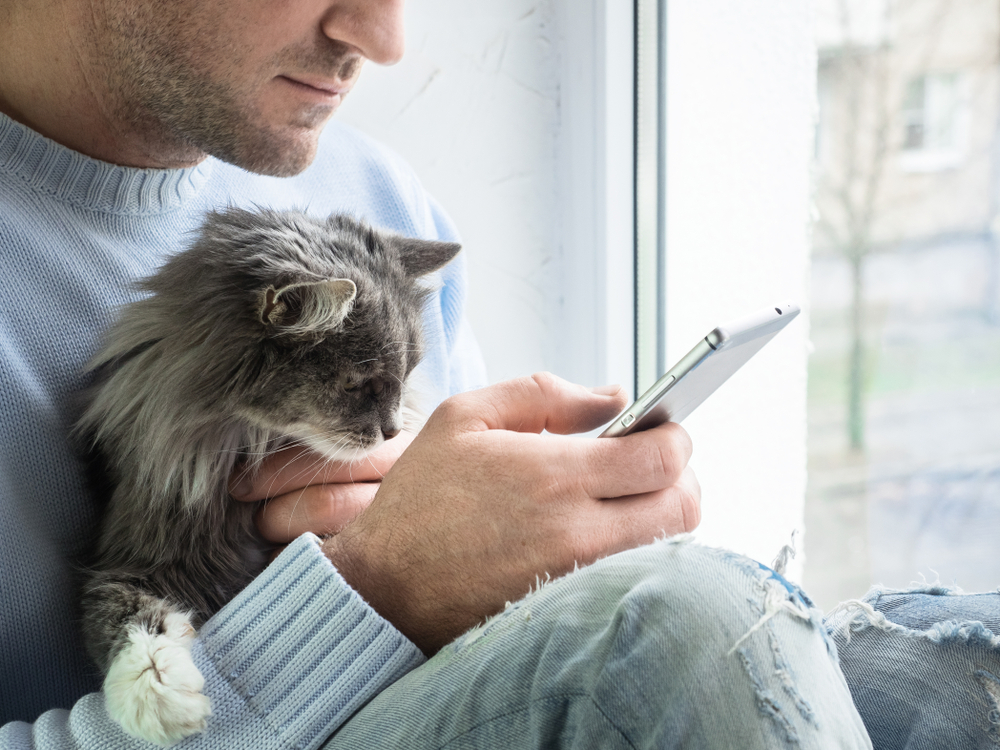
Why it matters if you have a Maine Coon mix
Knowing that your cat is a Maine Coon mix can be helpful because it can help you to better care for your cat. Maine Coons are predisposed to some health issues. According to ASPCA Pet Insurance, Maine Coons can inherit a form of heart disease and a genetic disorder called spinal muscular atrophy. Hip dysplasia can also be a concern.
When you know that your cat is part Maine Coon, you and your vet can monitor and test your cat for these health issues. When you spot the health issues early, you can better manage and treat them, helping to keep your cat healthy.
Maine Coons can be fantastic pets, thanks to their social and gentle nature. If you have a cat who’s a Maine Coon cross, chances are he’ll have some of these same qualities. While you’ll need to genetically test your cat to confirm exactly which breeds he is, this genetic testing can be a good idea. It can provide you with valuable information about your cat’s breeds, and that, in turn, alerts you to any corresponding health issues that you might need to watch for. With this extra information, you can better understand not only some of your cat’s tendencies but also why he behaves the way he does and the specific care he may need to be able to thrive and live a long, happy life.

